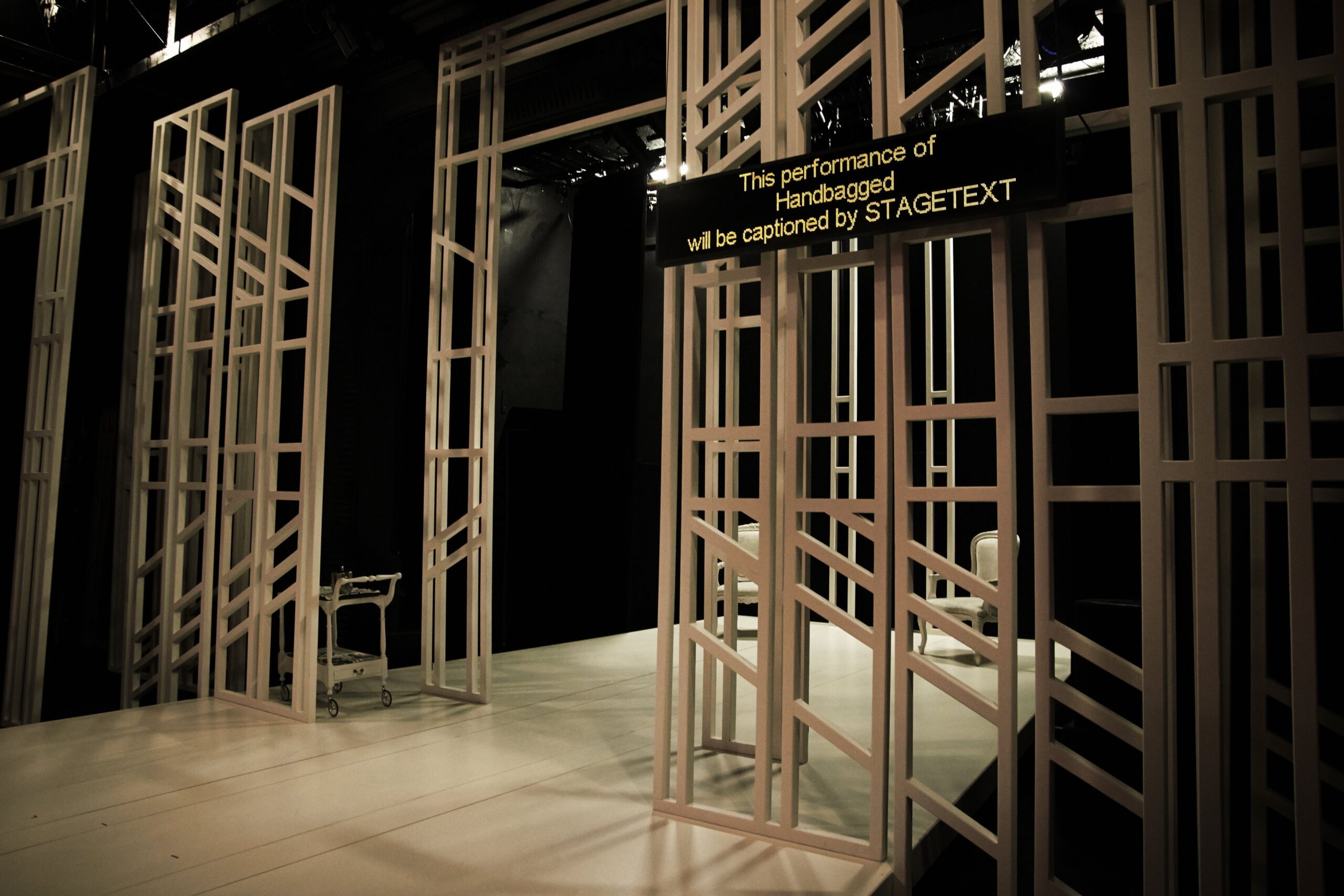
Caption unit at Handbagged by Moira Buffini at the Tricycle Theatre, London
Photo: Jeremy Fowler
Automated captioning
Captioning live theatre performances for the deaf is often seen as costly and inflexible, says Laura Arends. But new automated technology promises to be "truly transformative".
For the past 14 years STAGETEXT has been working with theatres to provide captioning services which increase access to live performances for deaf, deafened and hard-of-hearing attenders. More recently, the service was extended to include live speech-to-text for talks and tours in museums, galleries and at festivals. The number and range of accessible events offered across the UK is still increasing year on year, but cost is often cited as a barrier to venues wishing to offer accessible events. In addition, lack of choice over the dates and times for captioned performances is often highlighted as problematic to caption users.
One of the ways that we have been able to increase services to our customers is through the development of new technologies, and the Digital R&D-funded CaptionCue project will be integral to this work over the coming year. CaptionCue will develop a method by which captioning for certain theatre productions might be automated. It will take speech-following technologies developed by Screen Systems Ltd, our technical partner for the project, for use in the broadcast industry as its starting point and make use of the known script of a production and the audio captured in the show relay to automatically track the captioning text against what is being said on the stage. The system might not be appropriate for every type of show. We expect to find that the quality of audio produced through a show relay will vary enormously between theatres and so part of the project will set the parameters for what is possible.
This project will enable us to advise theatres about how different display devices, such as tablets, Google Glass or caption units, impact on the users’ ability to engage with what is happening on stage
The Digital R&D Fund for the Arts is a partnership fund between Nesta, the Arts & Humanities Research Council and Arts Council England. Jon Kingsley, Director of Creative Economy Programmes at Nesta said: “CaptionCue promises to be truly transformative for arts performance organisations by dramatically reducing the cost of captioning – helping to engage not only those with hearing difficulties but also people for whom English is a second language.”
Dr Pablo Romero Fresco, Reader in Accessibility and Filmmaking at Roehampton University, will be the research partner for the project. His role will be to assess the impact of different display devices on caption users and CaptionCue’s accuracy in terms of the text that it generates. This project will enable us to advise theatres about how different display devices, such as tablets, Google Glass or caption units, impact on the users’ ability to engage with what is happening on stage.
The project will be led by Roger Graham, our Technical Advisor, who has worked with many theatre technicians to develop methods of captioning which meet both the needs of the art and the needs of the audience. We will be working with several theatres and theatre companies including the National Theatre, ATG and English Touring Theatre. The project will take a year to complete with the results expected in the spring or summer next year.
Laura Arends is Director of Communications at STAGETEXT.
www.stagetext.org
To be kept informed about progress please email [email protected].
Join the Discussion
You must be logged in to post a comment.